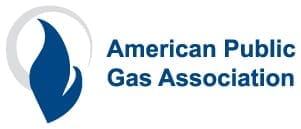- Home
- /About
About OQIP
In 2016, the Distribution Contractors Association created a task force to investigate whether and how the industry can improve the OQ process and provide more consistency in compliance with operator OQ programs. Recognizing pending adjustments by PHMSA to several provisions of the OQ rule, the task force believed a fresh look at and potential new approaches to OQ will benefit all stakeholders.
Structured Coalition of Industry Leaders
The work of the task force has evolved from a discussion of several OQ-related issues by an ad hoc group of interested stakeholders to a structured and chartered 501 (c) 3 non-profit organization led by a board of Operators, contractors, and OQ service providers. Regional and National Gas Associations, Industry consulting groups, & subject matter experts who represent various sectors of the Gas Industry from all areas of the nation provide expertise in the management of the process. This group built a strong Industry Coalition on OQ Integrity, establishing high expectations and placing validating measures in place to assure member organizations are performing with “the bar raised higher” than we have often seen in our industry.
The efforts of these members of the OQIP Coalition have created a fundamentally different, yet sound and robust process that creates a standardized approach to deploying all aspects of qualifying, training, testing, and auditing elements associated with OQ. The deliverables of this OQIP process lays out specific expectations and benchmarks for all who choose to strive for OQ excellence and are willing to be audited and held accountable for operating at a higher level of OQ program effectiveness, auditing, and leading the American gas industry in safe, reliable, validating, and credible pipeline personnel qualifications.
The Coalition believes the merits to this OQ Integrity approach will be enjoyed by operators, contractors, and regulators.
Goals:
- Develop and promote a more consistent and standardized OQ process which can derive positive results associated with credibility and validity to the individual.
- Establish the minimum requirements for a national OQ Integrity Program
- Improve the OQ process and provide more consistency in compliance with operator OQ programs.
- Strengthen the requirements needed for OQ, while creating a path to increased integrity, reliability and portability of qualifications issued to the industry’s workforce
- Validate measures in place to assure member organizations are performing at a higher level.
Possible Benefits:
- Risk mitigation
- Regulatory confidence
- Mutual-aid agreements and response time between operators and contractors
- Standardized regulatory compliance
- Addressing challenges to replace aging infrastructure coupled by an aging workforce entering retirement
- Consistency for regulatory audits
- Continuous improvements to OQ programs
- OQ portability










